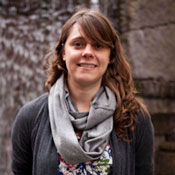
Jennifer Adair, PhD
Appointments
- Associate Professor, Clinical Research Division
- Fleischauer Family Endowed Chair in Gene Therapy
- Research Associate Professor, University of Washington
Education
- Ph.D. Genetics and Cell Biology (Summa cum laude)
Washington State University
Pullman, WA - B.S. Chemistry (Cum laude)
Youngstown State University
Youngstown, Ohio
Awards and Honors
- The Fleischauer Family Endowed Chair in Gene Therapy Translation (2020)
- Executive Board of Directors, Translational Data Science Institutional Research Center (2019)
- Selected Power Talk, Gene Editing (CRISPR): Balancing Scientific Advances and Ethical Dilemmas, GeekWire Summit (2019)
- Selected Flash Talk, Gene Editing Goes Global, AAAS Annual Summit (2019)
- Innovative Technology Award, Bill & Melinda Gates Foundation (2019)
- Featured Researcher, Diversity in Action (2018)
- Associate Editor Human Gene Therapy (2018)
- Executive Board of Directors – American Society of Gene and Cell Therapy (2018)
- Hartwell Foundation Individual Biomedical Research Award (2018)
- Human Gene Therapy Editorial Board (2017)
- TEDx Healthcare Next Speaker (2017)
- Outstanding New Investigator Award - American Society of Gene and Cell Therapy (2015)
- Roche 454 High Throughput Sequencing Award - Fred Hutchinson Cancer Research Center (2012)
- Young Investigator Award - International Society for Cell Therapy (2012)
- Abstract Excellence Award - American Society of Hematology (2011)
- Travel Grant Award - Fanconi Anemia Research Fund (2011)
- Travel Grant Award - American Society of Gene and Cell Therapy (2010-2011)
- Excellence in Research Award - American Society of Gene and Cell Therapy (2010)
Research Interests
- Genetic and cell engineering of hematopoietic (blood) cells has emerged as a viable treatment for inherited, malignant and infectious diseases with the potential to significantly decrease global disease burden. However, the approach is unique to each disease target, making it difficult to equitably distribute this type of therapy. The lessons learned from the first FDA-approved therapeutics and ongoing clinical studies provide directives to overcome remaining barriers to mainstream clinical application.
- General areas of development include refining existing blood cell collection, manipulation and administration techniques for globally-accessible distribution, including both ex vivo and in vivo approaches. Development of open-access tools and methods for further distribution and refinement. Disease-specific therapeutic development with appropriate model systems.
- We use current state-of-the-art and newly developed technologies that bridge different scientific disciplines to translate gene therapy for each disease candidate into the most appropriate and widely available clinical approach.

Fred Hutchinson Cancer Center | 1100 Fairview Ave. N., Seattle, WA 98109
© 2025 Fred Hutchinson Cancer Center, a 501(c)(3) nonprofit organization.
© 2025 Fred Hutchinson Cancer Center, a 501(c)(3) nonprofit organization.